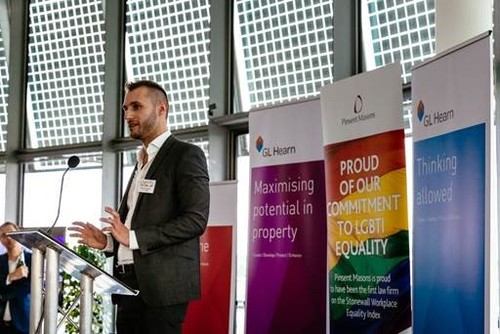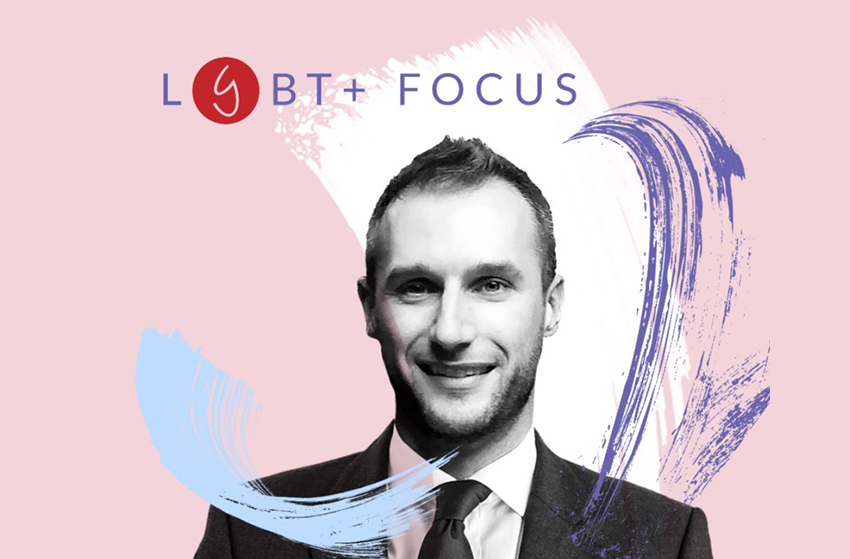As part of our LGBT+ Focus inclusive leadership interviews, we speak to Rob Krzyszowski, Assistant Director, Planning, Building Standards & Sustainability at Haringey Council, and England Policy Panel Chair at the Royal Town Planning Institute, who talks about the importance of openness and authenticity in leadership.
What led you on your career path and how much of it was planned?
I always knew I was interested in cities and how they work and are designed. So I knew what I wanted to do early on and there was no difficult career choice for me to make.
How did you adapt to change along the way?
My first couple of jobs were in the private sector which was great experience and I learned so much from a consultancy perspective – not as different from the public sector as may first seem! But I knew that I wanted to be in the public sector, so this meant being open to the jobs available and getting as much wide experience as possible.
What are the challenges of being an executive/senior leader that motivate you the most and what impact do you aim to bring?
Working in the public sector I get motivated by the ‘sweet spot’ of delivering on community and political priorities whilst also achieving a professionally and technically sound outcome. Particularly I get motivated by seeing the people that I work with thrive on a project and stretch themselves to deliver a real outcome and end result.
How difficult can it be to move out of the shadow of a predecessor?
I think as long as you are clear that you are a different person which brings with it different strengths and weaknesses it is not difficult at all. It would be much more difficult to pretend you’re exactly the same person! Better to be authentic than not.
In this period requiring sustained resilience and ingenuity – what are the skills that you have seen that have marked outstanding leaders?
Listening is the number one skill that we should all strive to improve on. It’s very easy for us all to fall in a trap of hearing what we want to hear and that doesn’t necessarily lead to the best outcome. I’m lucky to work with amazingly talented, hard working and knowledgeable people and it would be a waste not to hear their thoughts, even if in the end you sometimes take a different view as a leader.
In your leadership career, has being LGBT+ presented barriers to progression? If so, how did you tackle these?
I am lucky and feel I have not experienced barriers to progression from being LGBT+. But from the work I did a few years ago co-founding and co-chairing ‘Planning Out’ – a network for LGBT+ town planning and built environment professionals – I did hear a few horror stories of homophobia ranging from offensive ‘banter’ to outright discrimination in the workplace. This can make people feel alone and isolated in the workplace, and can end up having to leave that organisation. This can be a barrier to their desired career progression but is also a huge loss of talent for that employer.
As a senior leader yourself, how have you then used this insight to create a more inclusive culture within your own sphere of influence?
In my introductory meetings with staff in my last few jobs I’ve mentioned the work I’ve done on LGBT+ and general ‘diversity’ issues to my teams up front. I think it’s important to get it out there and show that diversity isn’t a difficult or embarrassing conversation to have, and people should feel empowered to talk about it. Hopefully that strikes a chord with some people and gives them a license to talk about it too – if they are experiencing something or if they feel they should challenge something in the workplace, they can speak up about it with confidence that senior management takes diversity and inclusivity seriously. We should want people to be comfortable in themselves in the workplace, and we can only do that if we are comfortable in ourselves.
How effectively do you feel public services/your sector are/is accelerating the growth of more inclusive cultures?
The local authorities I have worked at have generally been very good at showing strong leadership at the top on diversity issues. I think generally the public sector has been good at this, as we are all too aware of the longstanding equalities obligations we have to fulfil in our jobs and the diverse communities that we serve. But it still requires strong and constant leadership, it cannot just be a one-off.
The planning profession has been good at promoting LGBT+ diversity too – my professional body, the Royal Town Planning Institute (RTPI) proactively supported Planning Out when we set up and we found we were welcomed with open arms. There is still much to be done on diversity in the profession but I feel there are positive actions being taken to tackle this step by step, and a willingness to talk about it.
As you have achieved greater career success, is the visibility that sometimes comes with being an LGBT+ leader a responsibility that can impact your own wellbeing? Do you feel you are under a greater spotlight and increased scrutiny?
Being confident in yourself can only have a positive impact on your wellbeing. I don’t feel I am under a greater spotlight or scrutiny, but I do think it is important to have leadership from senior managers and professionals to promote diversity and share their story.
What advice would you give to aspiring leaders who feel they may be held back by their orientation or any other element of diversity?
Be yourself. Be authentic. Don’t hold yourself back! And if you come across any problems, there are so many support networks that can help remind you that you’re OK and there is safety in numbers.
You can access the full LGBT+ Focus series here.

